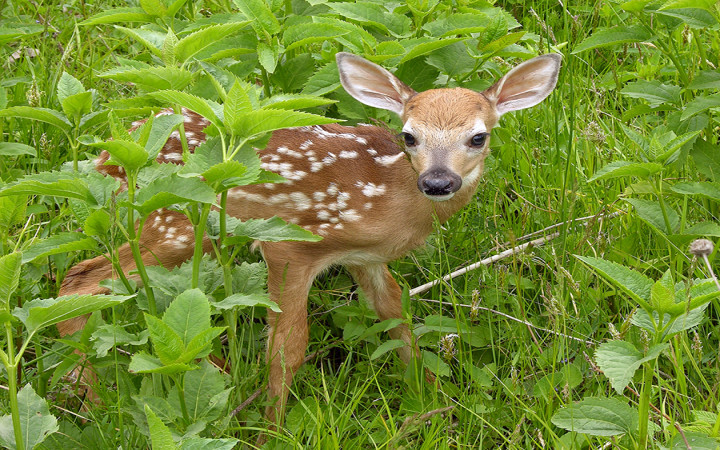Today’s Wonder of the Day was inspired by S Hovanec. S Hovanec Wonders, “Where can I find a fact about baby animals?” Thanks for WONDERing with us, S Hovanec!
We were meandering through the Wonderopolis forest the other day when we overheard an interesting conversation between a deer and a badger:
Badger: Hello, dear! You have such cute little cubs there.
Deer: You mean my fawns? Yes, they're adorable. So is your little fawn!
Badger: You mean my cub?
Deer: Huh?
Badger: What? Why do you call your little ones fawns?
Deer: Why do you call your baby a cub?
Badger: I have no idea.
Deer: Me neither!
Their conversation got us to thinking about baby animals. Why are there so many different names for the young of different types of animals?
The official names of adult animals often come from the Latin names given to particular species. Names for animal young, however, aren't scientific. Instead, they have often evolved over many years from many different sources, including hunting and domestication.
For example, "fawn" is the word used for deer and caribou young. Historians note that the word has a couple of different historical meanings. One meaning comes from the Old English word for "glad," which also gives meaning to the modern English verb "to fawn." The noun form comes from a Middle English word meaning the "young of an animal."
Some baby animal names are fairly common. For example, baby bears, badgers, walruses, leopards, lions, and tigers are cubs. A baby buffalo, camel, cow, elephant, elk, giraffe, rhinoceros, or whale is known as a calf.
Other animals have unique names for their young. Baby owls are owlets, and baby porcupines are porcupettes. Baby marsupials, such as kangaroos, koala bears, wallabies, and opossums are joeys. A baby hare is known as a leveret.
If you come across a kitten, it could be a baby cat, bobcat, cougar, rabbit, or skunk. A kit, on the other hand, could be a baby beaver, ferret, fox, mink, or weasel.
One common — and somewhat scary — name for baby fish is fry. Do we call young fish fry because we're looking forward to cooking them for dinner? Not quite!
The name fry comes from an Old Norse word (frío, freó, or fraé) meaning seed or offspring. It also used to apply to other types of young, including humans. Fans of Shakespeare might recognize the insult "young fry of treachery" used in Macbeth.




